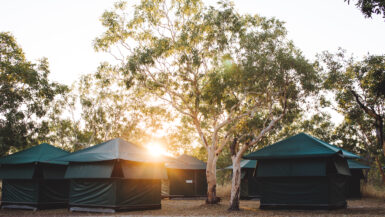Switzerland is a country known for its natural beauty, with stunning lakes, mountains, and forests that attract tourists from all over the world. Camping is a popular way to explore the Swiss countryside, and with a growing concern for the environment, many campers are looking for eco-friendly camping sites that minimize their impact on the environment. Fortunately, Switzerland has a range of eco-friendly camping options that offer a sustainable and enjoyable camping experience. In this article, we will explore some of the best eco-friendly camping sites in Switzerland, highlighting their unique features and sustainable practices. Whether you’re a nature lover or simply looking for a more sustainable way to enjoy the great outdoors, these camping sites are sure to impress.
Introduction to Eco-Friendly Camping in Switzerland
Switzerland is a country known for its breathtaking landscapes, picturesque villages, and outdoor adventures. Camping in Switzerland is a great way to experience the country’s natural beauty up close and personal. However, camping can have a negative impact on the environment if not done responsibly. This is where eco-friendly camping comes in. Eco-friendly camping, also known as sustainable camping, is a way to enjoy nature while minimizing your impact on the environment. In Switzerland, there are several eco-friendly camping sites that offer sustainable options for campers. In this article, we will explore the best eco-friendly camping sites in Switzerland and provide tips on how to camp in an environmentally conscious way.
Criteria for Selecting Eco-Friendly Camping Sites
When choosing an eco-friendly camping site in Switzerland, there are several factors to consider. Here are some criteria to keep in mind:
Location
Choose a camping site that is located in a natural setting, away from busy roads and urban areas. This will ensure that you can fully immerse yourself in nature and reduce your carbon footprint by avoiding transportation.
Facilities
Look for camping sites that offer sustainable facilities such as composting toilets, solar-powered showers, and recycling stations. These facilities will help reduce waste and conserve energy.
Certifications
Check if the camping site has any eco-certifications such as the Swiss “Eco-Camping” label or the European “Ecolabel”. These certifications ensure that the camping site follows strict environmental standards and practices.
Activities
Choose a camping site that offers eco-friendly activities such as hiking, cycling, and wildlife watching. These activities will allow you to explore the natural surroundings while minimizing your impact on the environment.
Community Involvement
Look for camping sites that are actively involved in the local community and support environmental initiatives. This shows that the camping site is committed to sustainability and making a positive impact on the environment.
By considering these criteria, you can select an eco-friendly camping site that aligns with your values and helps you reduce your impact on the environment.
Top Eco-Friendly Camping Sites in Switzerland
Switzerland is home to several eco-friendly camping sites that offer sustainable options for campers. Here are some of the top eco-friendly camping sites in Switzerland:
Camping TCS Disentis
Located in the heart of the Swiss Alps, Camping TCS Disentis offers stunning views of the surrounding mountains and a range of eco-friendly facilities such as solar-powered showers and composting toilets. The camping site is also involved in local conservation efforts and offers eco-friendly activities such as hiking and cycling.
Camping Lazy Rancho
Camping Lazy Rancho is a family-run camping site located in the Jura Mountains. The camping site offers eco-friendly facilities such as recycling stations, solar-powered showers, and composting toilets. The site is also involved in local conservation efforts and offers eco-friendly activities such as hiking and wildlife watching.
Camping Seefeld Sarnen
Camping Seefeld Sarnen is located on the shores of Lake Sarnen and offers stunning views of the surrounding mountains. The camping site offers eco-friendly facilities such as solar-powered showers and composting toilets. The site is also involved in local conservation efforts and offers eco-friendly activities such as swimming, boating, and cycling.
Camping Au Lac de Zurich
Camping Au Lac de Zurich is located on the shores of Lake Zurich and offers beautiful views of the lake and surrounding mountains. The camping site offers eco-friendly facilities such as recycling stations, solar-powered showers, and composting toilets. The site is also involved in local conservation efforts and offers eco-friendly activities such as swimming, boating, and cycling.
These are just a few examples of the many eco-friendly camping sites in Switzerland. By choosing an eco-friendly camping site, you can enjoy the natural beauty of Switzerland while minimizing your impact on the environment.
Camping in the Swiss Alps: A Sustainable Adventure
The Swiss Alps are a popular destination for outdoor enthusiasts and camping enthusiasts alike. Camping in the Swiss Alps can be a sustainable adventure if done responsibly. Here are some tips for sustainable camping in the Swiss Alps:
Choose an Eco-Friendly Camping Site
When camping in the Swiss Alps, choose an eco-friendly camping site that offers sustainable facilities and practices. This will ensure that your camping trip has a minimal impact on the environment.
Leave No Trace
When camping in the Swiss Alps, practice the “Leave No Trace” principle. This means packing out all of your trash, not disturbing wildlife, and leaving the campsite as you found it.
Use Sustainable Gear
When camping in the Swiss Alps, use sustainable gear such as reusable water bottles, rechargeable batteries, and solar-powered chargers. This will reduce waste and conserve energy.
Minimize Your Carbon Footprint
When camping in the Swiss Alps, minimize your carbon footprint by using public transportation or carpooling to get to the campsite. This will reduce emissions and help preserve the natural beauty of the Alps.
Camping in the Swiss Alps can be a sustainable adventure if done responsibly. By choosing an eco-friendly camping site, practicing the “Leave No Trace” principle, using sustainable gear, and minimizing your carbon footprint, you can enjoy the natural beauty of the Swiss Alps while reducing your impact on the environment.
Sustainable Camping Practices to Follow in Switzerland
Camping is a great way to connect with nature, but it can also have a negative impact on the environment if not done responsibly. Here are some sustainable camping practices to follow when camping in Switzerland:
Reduce Waste
Reduce waste by packing reusable utensils, plates, and cups. Avoid single-use items such as paper plates and plastic cutlery. Also, make sure to pack out all trash and dispose of it properly.
Conserve Water
Conserve water by taking shorter showers and turning off the water while brushing your teeth or washing dishes. Also, consider packing biodegradable soap to minimize the impact on the environment.
Respect Wildlife
Respect wildlife by keeping a safe distance and not feeding them. Feeding wildlife can disrupt their natural behavior and can be harmful to their health.
Use Sustainable Transportation
Use sustainable transportation such as public transportation, biking, or walking to get to the campsite. This will reduce emissions and help preserve the natural beauty of Switzerland.
Minimize Your Impact
Minimize your impact by staying on designated trails and campsites. Avoid creating new trails or campsites as this can harm the environment.
By following these sustainable camping practices, you can minimize your impact on the environment and enjoy a responsible and enjoyable camping experience in Switzerland.
Benefits of Eco-Friendly Camping in Switzerland
Eco-friendly camping in Switzerland has several benefits, both for the environment and for the camper. Here are some of the benefits of eco-friendly camping in Switzerland:
Preserves the Environment
Eco-friendly camping helps preserve the environment by minimizing the impact on natural resources and wildlife. By following sustainable camping practices, campers can help protect the natural beauty of Switzerland for future generations.
Reduces Carbon Footprint
Eco-friendly camping helps reduce the camper’s carbon footprint by using sustainable transportation, minimizing waste, and conserving energy. This helps reduce emissions and preserve the natural beauty of Switzerland.
Offers Unique Experiences
Eco-friendly camping sites in Switzerland offer unique experiences such as hiking, wildlife watching, and stargazing. These activities allow campers to connect with nature and enjoy the natural beauty of Switzerland in a responsible and sustainable way.
Supports Local Communities
Eco-friendly camping supports local communities by promoting sustainable tourism and supporting local conservation efforts. This helps preserve the cultural heritage and natural resources of Switzerland.
By choosing eco-friendly camping in Switzerland, campers can enjoy the natural beauty of Switzerland while minimizing their impact on the environment and supporting local communities.
Challenges Faced by Eco-Friendly Camping Sites in Switzerland
While eco-friendly camping sites in Switzerland offer several benefits, they also face several challenges. Here are some of the challenges faced by eco-friendly camping sites in Switzerland:
Cost
Eco-friendly facilities and practices can be more expensive to implement and maintain, which can increase the cost of camping for the camper. This can make eco-friendly camping less accessible to some campers.
Education
Educating campers about sustainable camping practices can be a challenge for eco-friendly camping sites. Some campers may not be aware of the impact of their actions on the environment and may need guidance on how to camp responsibly.
Limited Resources
Eco-friendly camping sites may have limited resources such as water and energy, which can make it challenging to provide sustainable facilities such as showers and toilets.
Weather Conditions
Weather conditions in Switzerland can be unpredictable, which can pose a challenge for eco-friendly camping sites. Heavy rain and snow can make it difficult to maintain sustainable facilities and can increase the risk of erosion and other environmental damage.
Despite these challenges, eco-friendly camping sites in Switzerland are committed to promoting sustainable tourism and protecting the environment. By addressing these challenges and finding innovative solutions, eco-friendly camping sites can continue to provide sustainable camping options for campers.
Future of Eco-Friendly Camping in Switzerland
Switzerland has a long-standing reputation for being a leader in environmental conservation, and this extends to the country’s camping industry as well. As more and more people become aware of the impact of their activities on the environment, the demand for eco-friendly camping options is expected to increase.
In the future, we can expect to see more camping sites in Switzerland adopting sustainable practices such as using renewable energy sources, reducing waste, and minimizing water usage. Eco-conscious travelers will have even more options to choose from, with an increasing number of campsites offering eco-friendly amenities such as composting toilets and solar-powered showers.
However, there are also challenges that eco-friendly camping sites in Switzerland may face in the future. One of the biggest challenges is balancing the demand for sustainable camping with the need to maintain the natural environment. As more people seek out eco-friendly camping options, there is a risk that increased foot traffic could damage fragile ecosystems.
To address this challenge, camping sites may need to implement stricter regulations on camping activities and limit the number of visitors to protect natural habitats. Additionally, there may be a need for increased education and awareness campaigns to encourage campers to follow sustainable practices and minimize their impact on the environment.
Overall, the future of eco-friendly camping in Switzerland looks promising, with more camping sites adopting sustainable practices and increasing awareness of the importance of environmental conservation. As travelers become more conscious of their impact on the environment, we can expect to see a continued growth in eco-friendly camping options in Switzerland and around the world.
Tips for Planning an Eco-Friendly Camping Trip in Switzerland
If you’re planning an eco-friendly camping trip in Switzerland, there are several things you can do to minimize your impact on the environment and make your trip more sustainable. Here are some tips to keep in mind:
Choose an Eco-Friendly Campsite
When selecting a campsite, look for ones that have adopted sustainable practices such as using renewable energy sources, composting toilets, and recycling facilities. You can also look for campsites that have been certified as eco-friendly by organizations such as the Swiss Ecocamping Association.
Minimize Waste
Pack reusable items such as water bottles, utensils, and food containers to reduce the amount of waste you generate while camping. Avoid single-use items such as disposable plates and cups, and make sure to properly dispose of any waste you do generate.
Use Sustainable Transportation
Consider using public transportation or biking to your campsite instead of driving. If you do need to drive, try to carpool with others to reduce your carbon footprint.
Respect the Environment
When camping, make sure to follow the principles of Leave No Trace. This means packing out all of your trash, avoiding damaging vegetation, and staying on designated trails. Respect wildlife by keeping a safe distance and not feeding them.
Conserve Water and Energy
Be mindful of your water usage by taking shorter showers and turning off taps when not in use. Use energy-efficient lighting and appliances if available, and turn off lights and electronics when not in use.
By following these tips, you can help minimize your impact on the environment and make your camping trip in Switzerland a more sustainable one.





Leave a reply